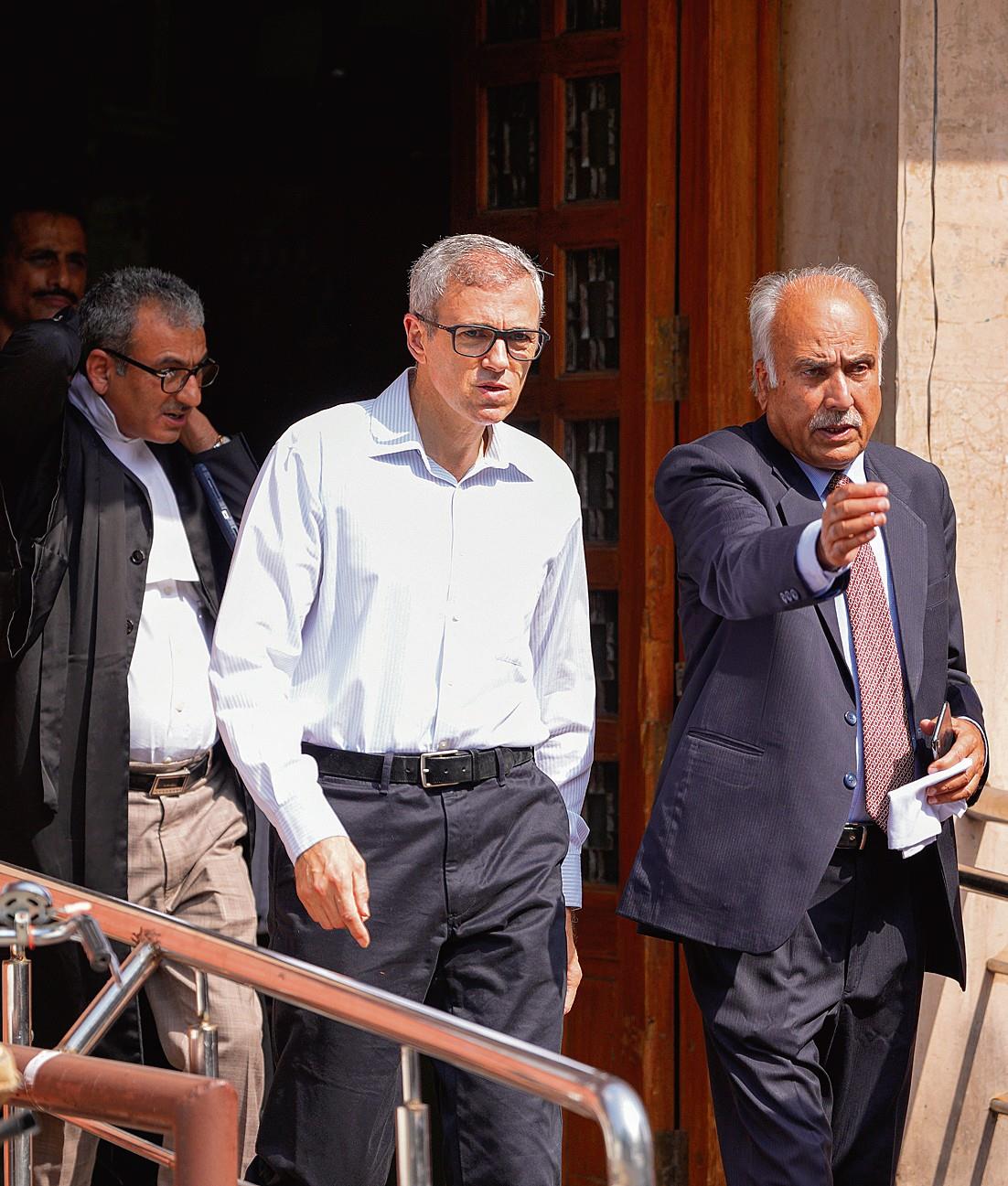
Satya Prakash
New Delhi, August 2
Terming Article 370 — which gave a special status to the erstwhile Jammu and Kashmir — as a basic feature of the Constitution, senior counsel Kapil Sibal on Wednesday asserted that Parliament couldn’t undo it without the consent of the state’s Constituent Assembly.
Who can recommend abrogation, asks SC
Who can recommend the revocation of Article 370 in Jammu and Kashmir when no Constituent Assembly exists there? Supreme Court put this question to the petitioners who have challenged the abrogation of Article 370
Opening his arguments on behalf of the petitioners who have challenged the constitutional validity of the nullification of Article 370 and bifurcation of the state into two UTs, Sibal said according to proviso to Article 370(3), the recommendation of the Constituent Assembly of Jammu and Kashmir was necessary to abrogate Article 370.
“Article 370 was called a temporary provision only because when the Constitution of India came into force, the Constituent Assembly of Jammu and Kashmir did not exist. However, once the Constituent Assembly (of J&K) came into being, created the Constitution for the state, and then ceased to exist after its tenure from 1951 to 1957, the Article became a permanent feature of the Constitution,” Sibal told a five-judge Bench led by Chief Justice of India DY Chandrachud.
“Today, the Indian Parliament cannot say by a resolution that we are the Constituent Assembly (of J&K). As a matter of law, they cannot because they’re now confined by the provisions of the Constitution. They must adhere to the basic features of the Constitution…. No Parliament can convert itself into a Constituent Assembly,” Sibal contended. The Bench posed several questions regarding the temporary nature of Article 370 to Sibal, who will resume his arguments on Thursday.
As Sibal argued that Article 370 became a permanent feature of the Constitution after the expiry of the tenure of the Constituent Assembly of Jammu and Kashmir, CJI Chandrachud pointed out that clause (3) of the provision contained a non-obstante clause that appeared to override the entire Article 370, including its special provisions.
The CJI said, “Acceptance of sovereignty of the dominion of India was complete. They (J&K) accepted sovereignty for all intents and purposes. That acceptance was complete but they reserved some rights over certain legislative subjects. So, the accession was complete. Consistent with that, they said that in clause (3), the President would have the right to abrogate 370.”
